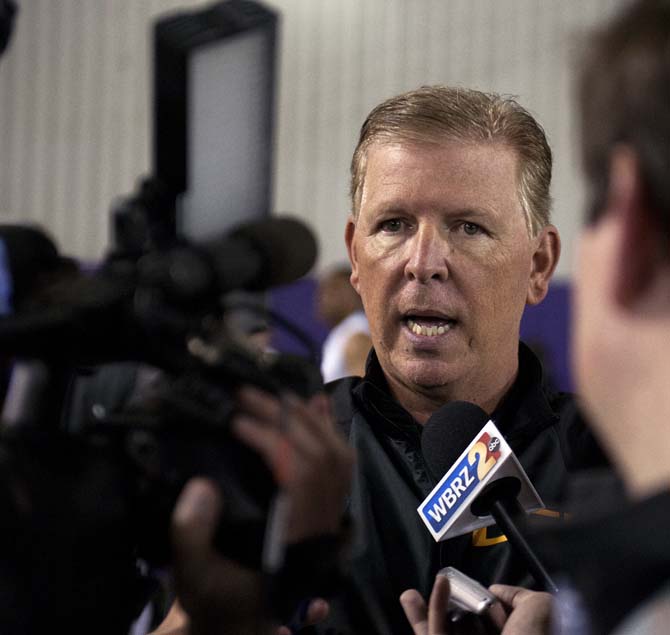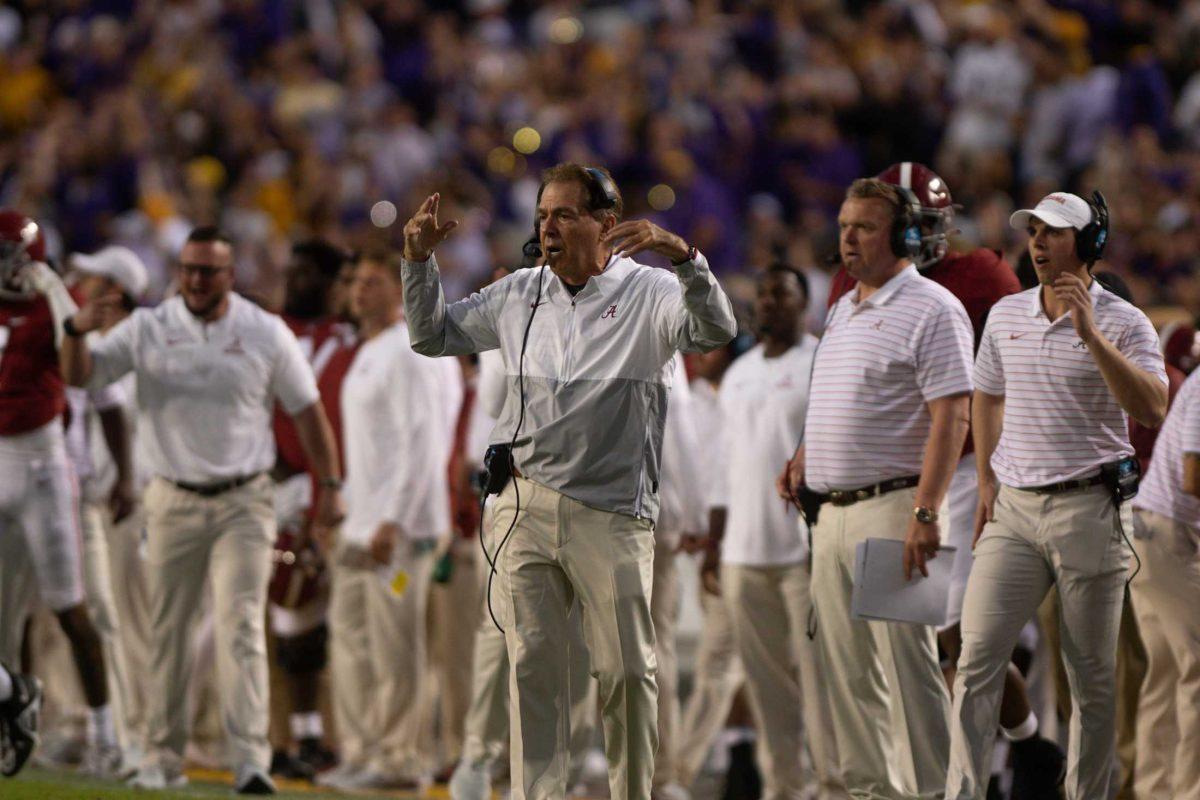I was more skeptical than most when LSU coach Les Miles hired Cam Cameron as his offensive coordinator two seasons ago.
With 10 seasons of experience as an NFL play caller, Cameron’s immense knowledge and understanding of the game was unquestioned and should have been enough for LSU fans to believe things could change for the Tigers’ continuously plagued offense.
But I couldn’t erase the thought of the Baltimore Ravens firing Cameron in Week 14 of 2012 before winning Super Bowl XLVII less than two months later.
That’s more than coincidence, and for a program that claims no year is a rebuilding year, it should’ve also been a warning.
However, the initial doubts were momentarily put to rest with the Tigers’ offensive resurgence during Cameron’s first season in Baton Rouge, the season after he inked the second-highest contract for a coordinator in the nation.
Then 2014 happened, and LSU’s one-year golden era of offense was quickly forgotten as the usually anemic one returned with renewed strength. The Tigers finished last in passing yards and completion percentage in the Southeastern Conference and tied with Florida for 11th in touchdowns.
Miles and LSU quarterbacks Anthony Jennings and Brandon Harris get the lion’s share of the blame, but Cameron is just as responsible for the Tigers’ offensive issues, and perhaps more.
As questions regarding LSU’s cloudy passing situation have resurfaced, questions should also be asked of Cameron’s ability to direct the Tigers to a championship, the team’s stated goal every season.
Should Cameron have become the second-highest paid assistant in the country?
It looked like money well spent in the beginning. In Cameron’s first season, LSU enjoyed its most productive year since 2001, totaling 453.3 yards of offense a game while scoring 35.8 points per contest.
But look at who Cameron had at his disposal.
Quarterback Zach Mettenberger is arguably the top rookie signal caller in the NFL, Jeremy Hill leads all first-year backs in rushing, Jarvis Landry has become Miami quarterback Ryan Tannehill’s go-to receiver, and Odell Beckham Jr. has exploded on the scene with his abundance of dazzling and acrobatic one-handed catches.
It would’ve been difficult for Cameron to hold back that type of talent.
The true test for the former NFL head coach was this season with Jennings and Harris — two very different quarterbacks than Mettenberger — and this is where Cameron must also now be questioned.
Can he guide an offense toward a championship?
There’s no question regarding Cameron’s level of insight into the game. But the mark of a good coach is how he maximizes his players’ natural abilities, not how many stars have matured under his watch.
There wasn’t a noticeable improvement from either Jennings or Harris the entire season. As the 116th-ranked passing offense in the country, one could even argue they regressed, which is simply unacceptable for the nation’s second-highest paid offensive coordinator.
Cameron made no changes to his philosophy or approach from last season even though his style of quarterback changed.
Whereas Mettenberger was in the traditional mold of under-center, three-step drop pocket passers, Jennings and Harris were most known for making plays with their legs. Cameron never properly utilized these different abilities until the regular season finale against Texas A&M after the season was long over.
But when the games truly mattered, such as against Mississippi State, Auburn, Alabama and Arkansas, both Jennings and Harris faltered. That goes back to Cameron’s questionable ability to put them in positions to succeed.
There’s no doubt Cameron is an above-average coach, but LSU didn’t shelve out $1.3 million to be above-average. Directing the nation’s 76th-ranked scoring offense is too low of a return on the high-priced investment.
I’m not an offensive coordinator, but given the Tigers’ mountain of struggles on that side of the ball this past season, LSU may have needed a different one.
David Gray is a 25-year-old mass communication senior from Gastonia, North Carolina.
Opinion: Cameron disappointing in second season as LSU offensive coordinator
By David Gray
December 7, 2014
LSU offensive coordinator Cam Cameron speaks with members of the media Wednesday, April 9, 2014 in the LSU Indoor Practice Facility.
More to Discover











